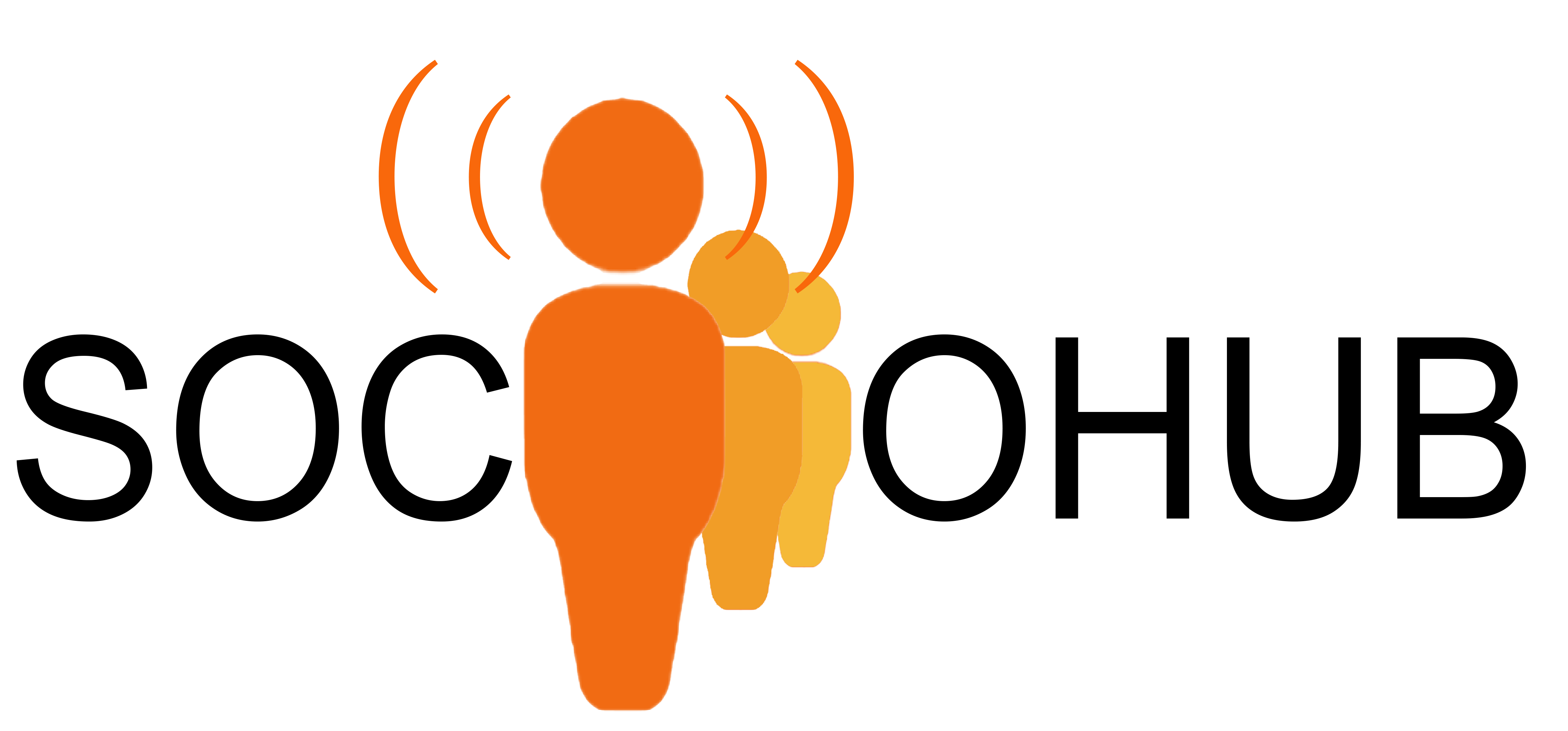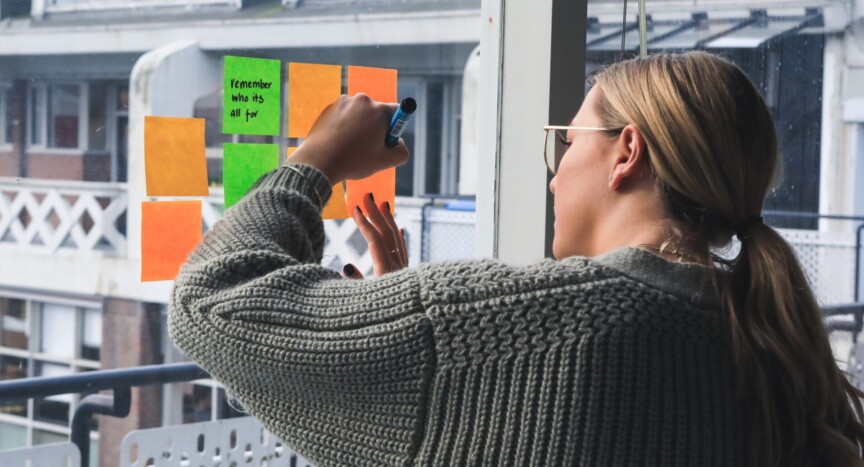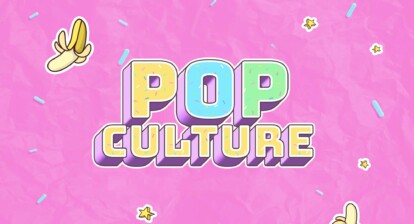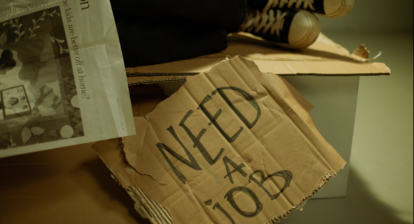Since the very beginning of my bachelor in International Sociology I was told that, in the 3rd year of my studies, I would have to do an internship in order to graduate. ‘Internship’ – one of those words that I have always heard, kinda known what it is, but wouldn’t be able to describe it in detail. And you know why? Because everyone has a different internship experience depending on many many things. Are you studying Medicine? Then since day 1 of year 1 of your studies, you know you will do your internship in a hospital. Are you studying Sociology? Then you’ll probably have no idea where your internship will take place till the moment you actually start it – which is cool, on one hand, because you really are free to choose based on your interests, but on the other hand this freedom makes the decision harder.
Personally, when I had to choose where to do my internship, I asked myself in which field I would like to work in the future, so that I could gain some experience during my internship. It turned out it wasn’t such an easy question to answer for me: I wasn’t sure at all about my career path, nor about what kind of jobs are out there for Sociology students.
I have always found appealing to work for an NGO so that’s what I tried first. Using my excellent IT skills, I Googled ‘NGOs in the Netherlands’, and went through the whole list. I sent so many emails my Gmail thought I was going crazy; I received so few responses I thought I was doing something wrong. Then Covid happened, and it sort of took my last hopes away.
But then, a great opportunity for an internship at the Sociology Department of TiU popped up. All that time spent browsing, all those emails sent, and there it was, much closer than expected. Why hadn’t I looked for internships at the department before? Because I assumed that doing an internship at university would mean research only but that’s not always the case.
So, this is how I started my internship at the Sociology Department of TiU with Ioana Pop, assistant professor with a keen interest in Health Sociology.
From microdosing to education innovation
During our first talk over Zoom – not a surprise in July 2020 – Ioana made clear to me that I was going to help her with mainly two things she was working on: a research on the microdosing practice among students, and a project, the ‘Socio-Hub’, that she designed as part of her Senior Teaching Qualification. The latter was the most appealing to me because it represented something I had never done before. Also, project development felt like a very practical task: finally something that wasn’t about reading theory and ‘speculating’, but that needed to be implemented, something that would take shape as I worked on it.
Going more into details, the first task of my internship was transcribing interviews that Ioana and her research assistant had previously recorded with the participants of the research “Powerful substances in tiny bits: The microdosing practice among students” (https://universonline.nl/nieuws/2020/02/19/microdosing-students-wanted-tilburg-university-study/)
As I said before, research practice is not my main interest but anyways I was excited about this task because I found the research topic very interesting and innovative. It doesn’t happen everyday to contribute to a scientific research on something as taboo as psychedelics. But there I was, spending my summer listening to students talking about their microdosing experiences.
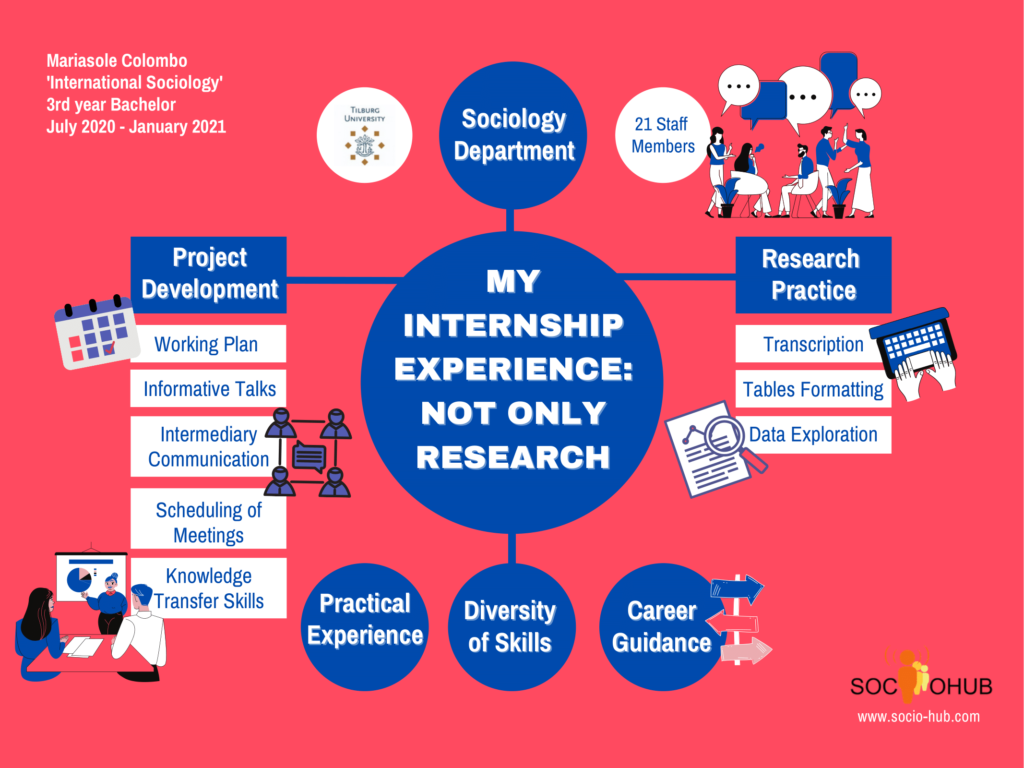
It took me approximately 100 hours to transcribe 20 interviews – enough time to get fed up with the topic. Yes, microdosing is certainly interesting, but transcribing is a difficult job that requires many different skills: you need to type fast, keep focused on the interviewee’s voice and stream of thoughts – probably the hardest part, especially considering the research topic – and search for words that you think you’ve heard but aren’t sure how to spell or if they make sense in that context. All in all, transcribing is a very rewarding job: it feels a bit like you’re deciphering some very important information, and that further discoveries on the research topic depend on the quality of your deciphering skill – or maybe this is just a story I told myself to get motivation.
For the rest of my internship I mainly dedicated myself to the ‘Socio-Hub’. The goal was to create a digital platform, where students and the staff of the Sociology Department can share their work (literature reviews, research reports, etc.) with the world outside academia. Also, the ‘Socio-Hub’ would provide students and researchers with material, tutorials, manuals to train their knowledge transfer skills, i.e. the necessary skills to make academic topics accessible and easy to understand for everyone.
I remember leaving Ioana’s office after our very first meeting in September 2020, feeling thrilled for what was ahead of us, and satisfied for what we had done during that first day only. We had developed a working plan for the ‘Socio-Hub’ that outlined all necessary steps to bring it to existence. Who had to be informed? Who could be interested in participating? How to reach out to these people? These and many more questions were answered that day, which allowed us to turn the Socio-Hub’ project from an idea in Ioana’s mind to a series of concrete tasks. During the implementation process, I had the chance to do many different things: from giving informative talks about the ‘Socio-Hub’ to recruit members, to scheduling meetings and deadlines for the other team members – easily my favorite task: I guess I am a planner maniac. I also worked a lot on the training skills material for blog posts. With my fellow team members, I interviewed experts in the field to gather information, tips and tricks on how to write a blog post; then we created a manual with guidelines to share with other students; and finally, here I am writing (or attempting to) my first blog post.
When thinking of the several tasks I had in the ‘Socio-Hub’ project, the most challenging was definitely learning how to make a factsheet. I had never done anything related to graphics but, in spite of all the difficulties, it was very satisfying to see the end product – though it looked nothing like I had pictured it in my head.
Roundup of this experience
Looking back at my internship while writing this blog post about it, I realize that I learnt so much: there are so many things I had learnt on a theoretical, abstract level, and now I see their practical, concrete use and potential; so many things that I had no idea how to do, and now I do – like, how to make a factsheet or how it differs from an infographic; but most importantly I learnt that project development is so incredibly stimulating and rewarding for me – and the craziest part about this is that I discovered this great interest of mine while doing an internship that I wrongly assumed to be all about research, and nothing else.
And even crazier is that the first job interview I had after my internship was for a position as social project developer – and guess what made me look like the perfect candidate? The experience I gained through this internship.
So, a little piece of advice. If, in the process of looking for an internship, you come across an opportunity at your TiU department, don’t discard it without asking, without talking to the teacher who’s offering it: you may be as lucky as me, and find an internship that gives you the chance to do several things, learn diverse skills and develop many competences. Because, after all, isn’t this the exact purpose of an internship: trying out different things to find what you really like/dislike doing, what are/aren’t your interests, and what you’re good/not so good at?
